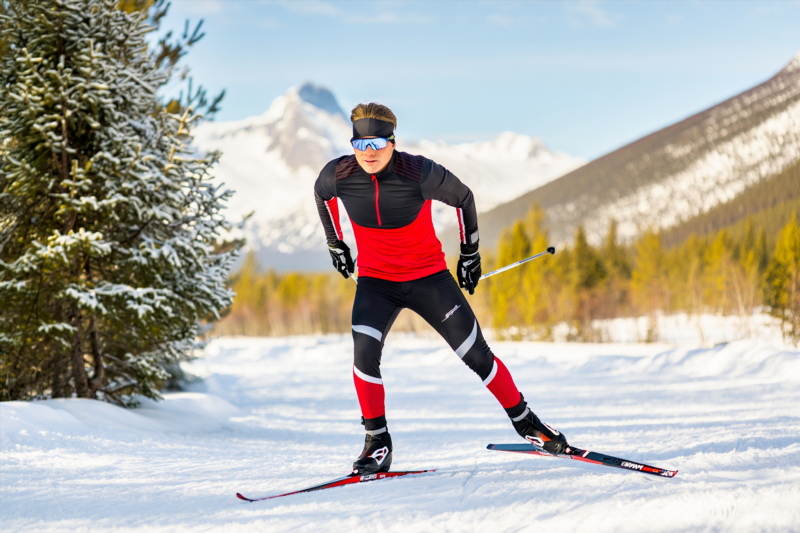Are you passionate about cross-country skiing but struggle to improve your speed without draining your stamina? Finding the perfect balance between speed and endurance is essential for optimal performance and enjoyment, whether you’re hitting the snow for winter fitness or competing at a high level. Fortunately, with the right training strategies, you can enhance your pace while preserving your stamina. This comprehensive guide reveals proven tips to help you accelerate your skiing skills effectively, ensuring you stay strong and resilient on the trails.
Understanding the Balance Between Speed and Endurance
Before diving into specific training tips, it’s vital to grasp why maintaining endurance while improving speed is a common challenge for skiers.
- Endurance: Your body’s ability to sustain prolonged physical effort, crucial for longer races or extended workouts.
- Speed: The rate at which you move on the snow, essential for competitive advantage and efficiency.
*The key is training smarter, not just harder.* Pushing harder for speed can sometimes diminish endurance if not properly managed. Conversely, focusing only on endurance may limit your ability to blow past competitors or finish strong. The goal is to integrate training methods that develop both qualities simultaneously.
Proven Training Tips to Enhance Speed Without Losing Endurance
Achieving this delicate balance requires a structured approach. Below are targeted strategies backed by sport science and experienced coaches.
1. Incorporate High-Intensity Interval Training (HIIT)
What it is: Alternating short bursts of maximum effort with recovery periods.
Why it works: HIIT increases neuromuscular efficiency and boosts your lactate threshold, allowing faster speeds without fatiguing your endurance capacity.
Sample session:
- Warm-up: 10 minutes easy skiing
- 4 x 2-minute high-intensity sprints (at 90-95% max effort)
- Recovery: 3-minute easy skiing between efforts
- Cool-down: 10 minutes easy skiing
Tip: Gradually increase the intensity and volume as your fitness improves.
2. Focus on Technique and Efficiency
Why it matters: Improving your technique reduces energy expenditure and allows for faster skiing with less fatigue.
Key areas:
- Proper weight transfer and gliding
- Optimized pole placement
- Efficient stride mechanics
Practice drills:
- Double poling drills
- Variable terrain skiing
- Technique-focused sessions integrated into endurance workouts
*Remember:* Better efficiency translates directly into speed gains without increasing effort or risking stamina depletion.
3. Use Periodization in Training
Definition: Structuring training cycles to balance intensity, volume, and recovery.
Benefits:
- Avoids overtraining
- Allows peak performance at key times
- Optimizes adaptation for speed and endurance
Implementation:
- Base phase: Emphasize endurance with longer, moderate-intensity sessions
- Build phase: Incorporate intervals and speed work
- Taper phase: Reduce volume, focus on sharpening technique
Pro tip: Consult with a coach or create a detailed schedule aligned with your competition or training goals.
4. Incorporate Strength and Plyometric Exercises
Purpose: Building muscle power supports faster strides and better acceleration.
Recommended exercises:
- Squats and lunges
- Plyometric jumps
- Core stability routines
Integration: Schedule strength sessions 2-3 times weekly, ensuring they complement aerobic workouts.
5. Listen to Your Body and Prioritize Recovery
Why it’s vital: Overtraining can cause fatigue, reducing both speed and endurance.
Recovery strategies:
- Adequate sleep
- Proper nutrition
- Active recovery days
Note: Use tools like heart rate monitors to track your effort and prevent burnout.
Additional Tips for Sustained Performance
| Tip | Explanation |
| Stay Hydrated | Proper hydration fuels muscles and prevents fatigue. |
| Warm-up and Cool-down | Reduce injury risk and facilitate recovery. |
| Consistent Practice | Regular training gradually builds speed and stamina. |
| Cross-Training | Incorporate cycling or swimming to enhance cardiovascular fitness and prevent boredom. |
Frequently Asked Questions (FAQs)
How long does it take to see improvements in speed and endurance?
Answer: Typically, noticeable progress occurs within 6-8 weeks of consistent, targeted training. Patience and adherence are key.
Can I combine speed and endurance training on the same day?
Answer: Yes, but structure your sessions to avoid excessive fatigue. For example, do speed work in the morning and endurance work later in the day, or alternate days.
Is it necessary to consult a coach or trainer?
Answer: While not mandatory, working with an expert can optimize your program, correct technique, and prevent injuries.
Final Thoughts: Elevate Your Skiing Performance
Improving your speed without sacrificing endurance is an attainable goal with a strategic, disciplined approach. By integrating high-intensity intervals, honing technique, strategically planning your training, and prioritizing recovery, you’ll unlock new levels of performance on the snow. Whether you’re chasing personal bests or simply seeking more enjoyment on winter trails, these proven tips will help you ski faster, stronger, and more efficiently.
Ready to take your skiing to the next level? Start implementing these tips today and experience the thrill of gliding effortlessly with speed and stamina!
Enhance your cross-country skiing journey now—your winter adventure awaits.
